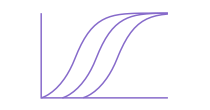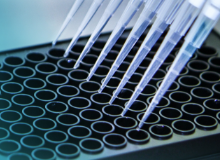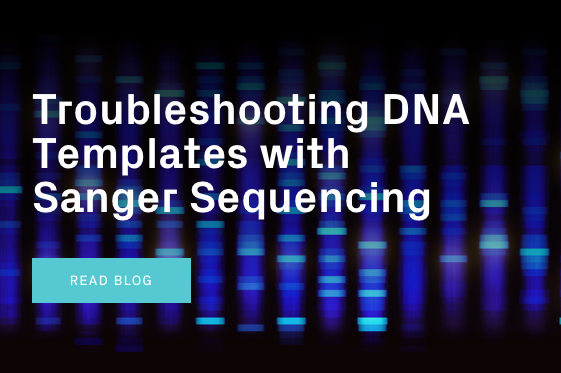Quantitative PCR (qPCR) and Digital PCR (dPCR)
From gene expression and genotyping to copy number variation (CNV) analysis and viral titer, GENEWIZ from Azenta offers a versatile polymerase chain reaction (PCR) portfolio that can be tailored to support the needs of your genomics project. Whether through endpoint or real-time detection, our unmatched quantitative PCR (qPCR) or digital PCR (dPCR) capabilities provide you with precise, rapid quantitation of nucleic acid sequences to simplify and advance the path toward your next breakthrough. Reach out to our experts to discuss your specific needs for nucleic acid detection.
PCR for Clinical Research
Regulatory guidelines recommend the use of PCR methodology for multiple quality and safety checkpoints throughout the drug development process. For cell and gene therapy products, hyper-sensitive dPCR has largely been used for the evaluation of viral titer as well as quantification of viral vector copy number (VCN) of treated cells for AAV, lentivirus, and retrovirus.
Contact us to learn how our customized PCR solutions can help you advance your clinical research.
Features & Benefits
-

Experimental Design and Optimization
To ensure project success -

Assay Development and Validation
Customized to meet your project needs -

Standard and Customized Data Analysis
Options available
PCR Workflow
-

1. Assay/Primer Design
-

2. Sample Preparation
-

3. PCR Processing
-

4. Data Analysis & Reporting
Sample Types Accepted
Viral Particles
RNA or cDNA
DNA
Cell or Tissue
Technical Resources

Blog | NGS, PCR, or Sanger Sequencing: An Assay Selection Guide
This selection guide offers practical information about PCR + Sanger, qPCR, and NGS approaches to help you determine which assay best suits your project requirements, along with an interactive assay selection tool to aid your decision making.




